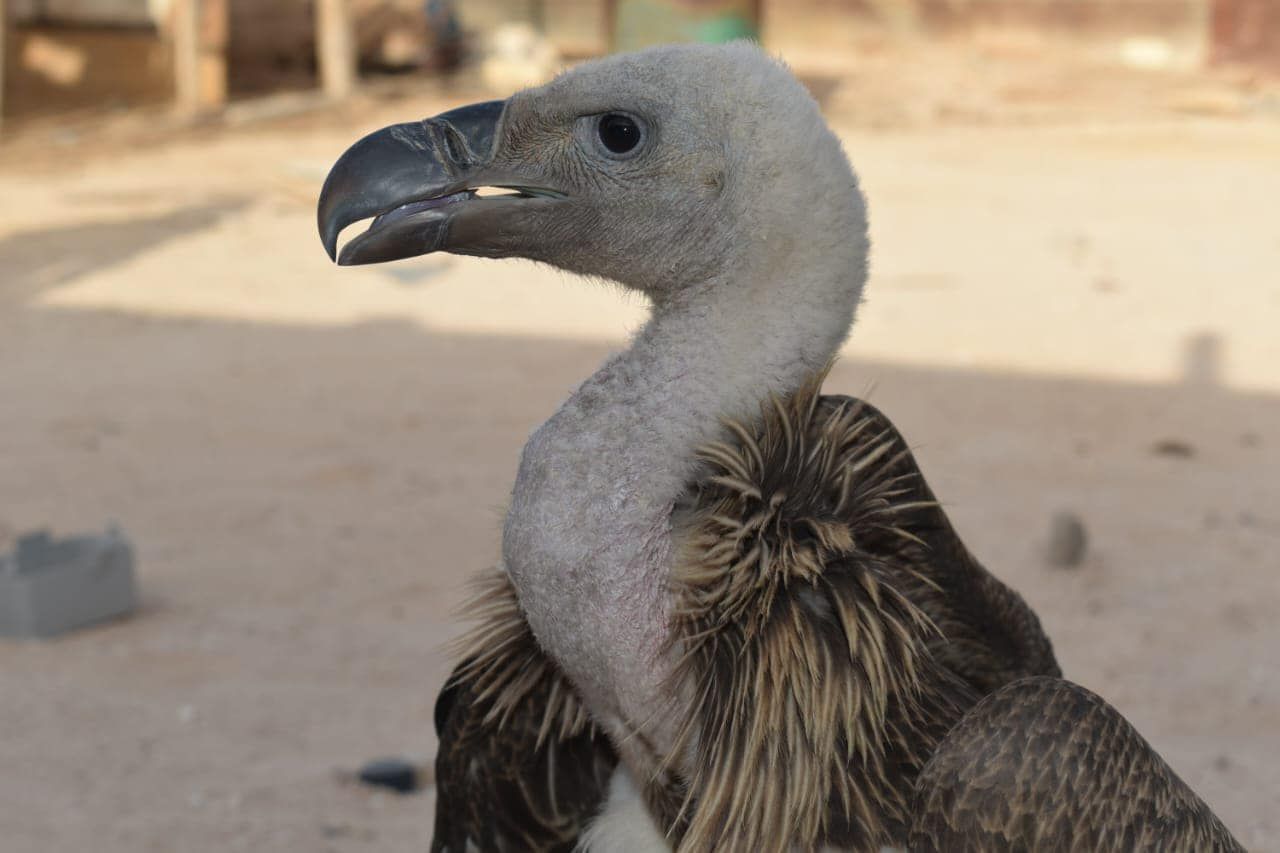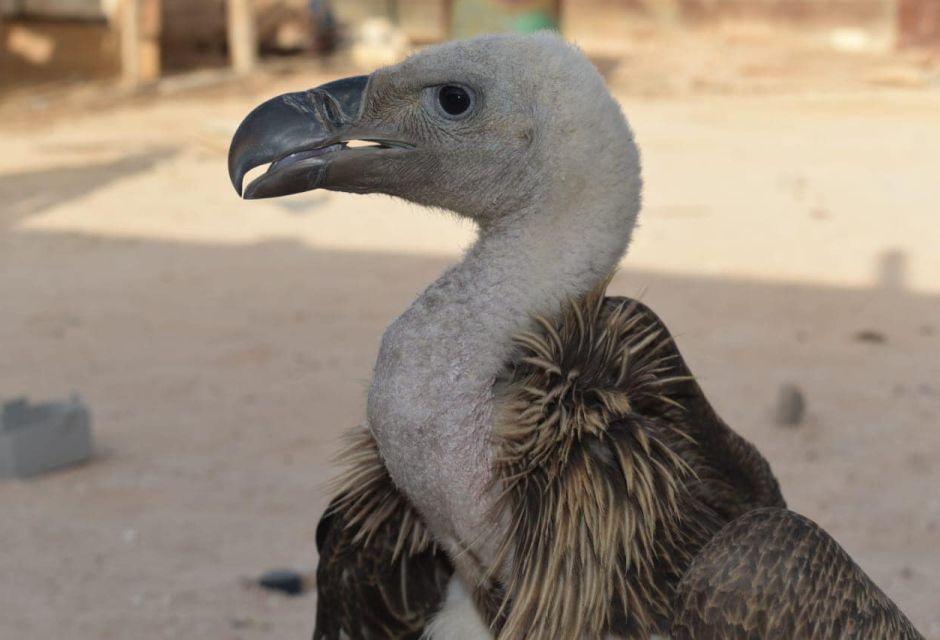International Vulture Awareness Day 2025.
Today, Saturday 6 September 2025, marks International Vulture Awareness Day, which has been celebrated annually on the first Saturday of September since its inception in 2006.
On this occasion, the Libyan Society for Birds extends its sincere gratitude and appreciation to all those who contribute to the protection and conservation of vultures. These birds play a fundamental role in maintaining ecological balance by removing carcasses and reducing the spread of diseases, despite the increasing threats they face due to urban expansion and various human activities.
The Society also takes this symbolic day to recall the status of the Egyptian Vulture (Neophron percnopterus), once widespread in the Nafusa Mountains and the Green Mountain but now extremely rare. In addition, a new species was recorded in Libya in 2021, the Rüppell’s Vulture (Gyps rueppelli), which was documented and cared for by the Libyan Society for Birds for a period of one and a half years. Several attempts were made to release it back into the wild, but without success, and it was eventually handed over to Tripoli Zoo for proper care and protection.
Unfortunately, recent incidents around the Zoo resulted in the loss of the Rüppell’s Vulture (Gyps rueppelli).
In this context, the Libyan Society for Birds issues a public appeal:
Should the vulture be found or sighted in any area, please contact the Society immediately through its official channels.
It is worth noting that Libya’s bird list includes four recorded vulture species:
- Egyptian Vulture (Neophron percnopterus)
- Griffon Vulture (Gyps fulvus)
- Rüppell’s Vulture (Gyps rueppelli)
- Lappet-faced Vulture (Torgos tracheliotos)
The Society hopes that this global event will contribute to raising environmental awareness of the importance of vultures and their role in nature, while strengthening efforts to safeguard them and their natural habitats for future generations as a vital component of Libya’s natural heritage.


Leave a Reply